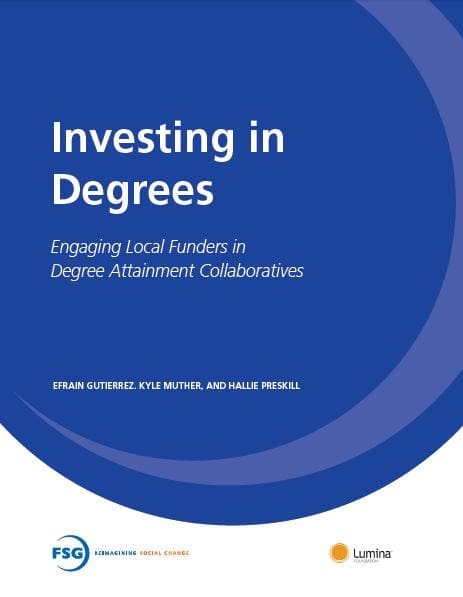More communities are coming together to focus their attention on increasing degree attainment—the number of people with quality post-secondary degrees and credentials. These cross-sector, collaborative efforts bring together nonprofits, higher education institutions, school districts, city governments, businesses, and local funders to work together in the development of the talent and skills their local economy needs.
Although collaboratives know they need local funders to increase the success of their efforts, many still struggle with how to engage them effectively.
This brief and accompanying tool are designed to help these groups understand how local funders can support their effort and how to engage local funders in these conversations.
See also the partnering report brief and tool on engaging businesses in degree attainment efforts.
Top Takeaways
- Many local funders are frustrated with the lack of systemic change that their direct service investments have achieved and are looking to collaborative efforts for a new approach.
- Local funders are positioned to play different roles in degree attainment collaboratives at different stages. They can be the catalyst at the beginning of the initiative, or they can use their strengths and knowledge as the infrastructure is created and sustained.
- To engage with local funders, involve them early on in the collaborative, use data to create a sense of urgency, show clear benefits and alignment to local funder’s strategies, and demonstrate measurable impact.
Tina Fernandez, ACHIEVE Atlanta



